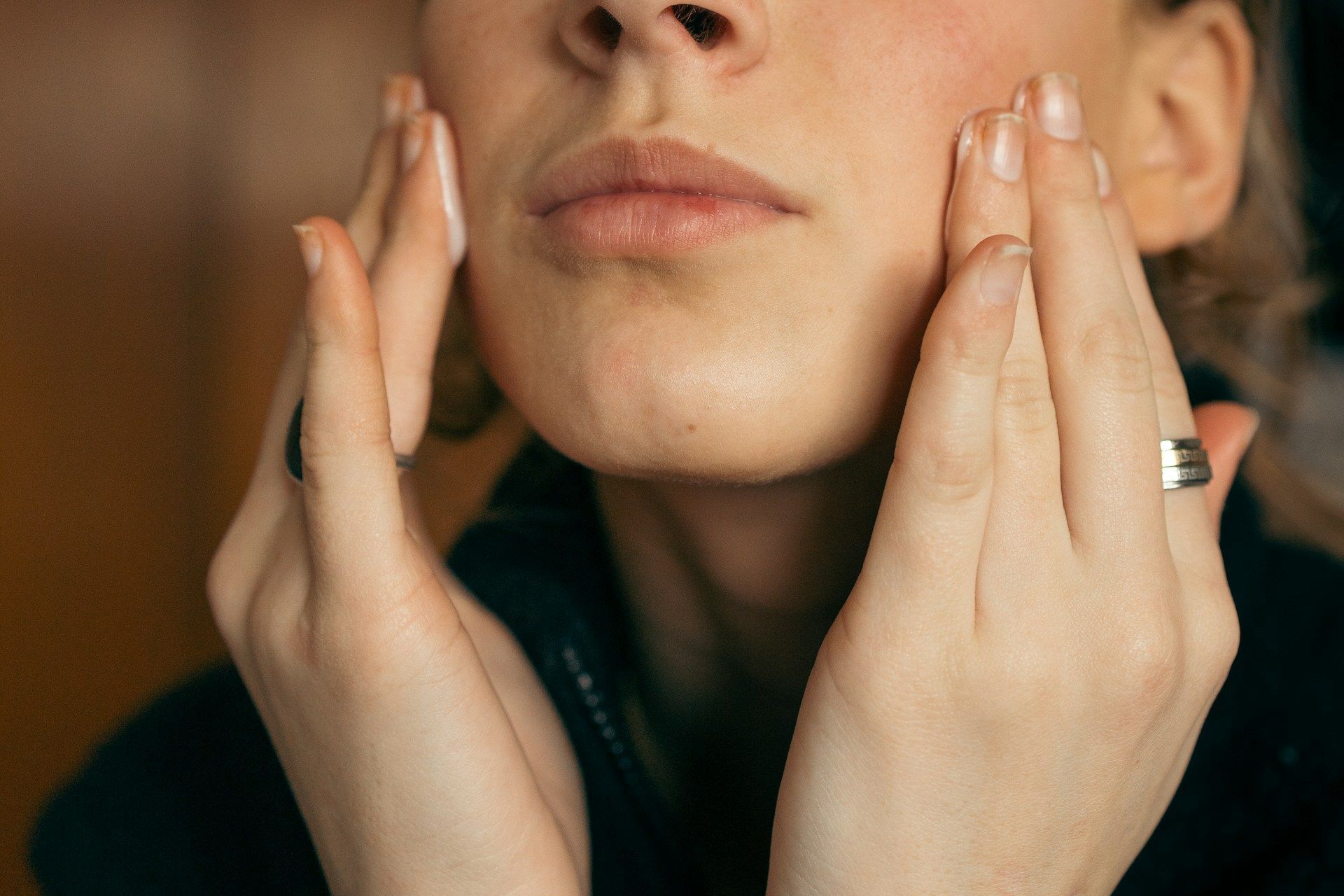Dr. Cameron Kuehne's Advice on Snoring Less and Sleeping Better

Snoring can be more than just a nighttime annoyance. It can disrupt your sleep and bother those around you. In Meridian, many people struggle with snoring and its impact on their overall health. If you are one of them, you’re in the right place. Understanding why you snores and finding effective solutions can change your life.
Dr. Cameron Kuehne at The Center For Sleep Apnea and TMJ is dedicated to helping people snore less and sleep better. Snoring happens when air can't flow easily through your throat and nose while you sleep. This can be due to several reasons, like the anatomy of your mouth, nasal problems, or being overweight.
In this article, we'll explore the causes of snoring, how lifestyle changes can help, and some effective home remedies to try. Dr. Cameron Kuehne also shares advanced treatments for persistent snoring problems. By following these tips, you can take steps towards a quieter, more restful night’s sleep.
Understanding the Causes of Snoring
Snoring occurs when air can't move freely through your nose and throat during sleep. This makes the surrounding tissues vibrate, producing the familiar snoring sound. Several factors can cause or worsen snoring. Understanding these can help you find the right solution.
One common cause is the anatomy of your mouth and sinuses. For example, having a low, thick soft palate can narrow your airway and lead to snoring. Being overweight contributes to snoring too, as extra tissue around your neck can press down on your airway.
Nasal problems like a deviated septum or chronic congestion also play a role. If your nasal passages are blocked, you’ll need to work harder to breathe, which makes the tissues in your throat vibrate more. Sleeping position matters too—lying on your back can cause your tongue and soft palate to collapse to the back of your throat, blocking the airway.
Dr. Cameron Kuehne highlights these causes and notes that lifestyle choices such as alcohol consumption can relax the muscles in your throat, increasing the likelihood of snoring. Knowing the reasons behind your snoring can guide you toward effective remedies.
Lifestyle Changes to Reduce Snoring
Making a few changes to your daily habits can significantly reduce snoring. Dr. Cameron Kuehne offers some simple tips to help you snore less and sleep better.
1. Maintain a Healthy Weight:
Shedding excess pounds can reduce the amount of tissue in the throat that might cause snoring. Focus on a balanced diet and regular exercise to achieve a healthy weight.
2. Sleep Position:
Try sleeping on your side instead of your back. This prevents your tongue from collapsing into your throat and blocking your airway. Using a body pillow can help keep you on your side.
3. Avoid Alcohol Before Bed:
Alcohol relaxes the muscles in your throat, making snoring more likely. Avoid consuming alcoholic beverages at least two hours before bedtime.
4. Establish a Sleep Routine:
Going to bed and waking up at the same time every day can improve the quality of your sleep. A consistent sleep schedule helps regulate your inner clock and reduces snoring.
5. Elevate Your Head:
Sleeping with your head raised can prevent your airway from becoming blocked. Use an extra pillow or raise the head of your bed by a few inches.
6. Stay Hydrated:
Drinking plenty of water keeps the tissues in your nose and throat moist, reducing the chances of snoring. Aim for at least eight glasses of water a day.
By incorporating these lifestyle changes, you can take control of your snoring and enjoy more restful nights. Dr. Cameron Kuehne emphasizes that even small adjustments can make a big difference.
Effective Home Remedies to Alleviate Snoring
There are several home remedies you can try to reduce snoring. These remedies are easy to implement and can make a big difference in your sleep quality.
1. Nasal Strips or Dilators:
Using nasal strips or an external nasal dilator can help open up your nasal passages. This allows for better airflow, which can reduce snoring.
2. Positioning Devices:
Special pillows or devices that encourage side-sleeping can help keep your airway open. These products are designed to prevent you from rolling onto your back during sleep.
3. Humidifiers:
Dry air can irritate the membranes in your nose and throat, causing snoring. Using a humidifier in your bedroom can add moisture to the air and reduce this irritation.
4. Essential Oils:
Certain essential oils like peppermint and eucalyptus can help open up your airways. You can use them in a diffuser or add a few drops to a warm bath before bed.
5. Throat Exercises: Performing exercises that target your throat muscles can help reduce snoring. These exercises strengthen the muscles in your throat, making it less likely for them to collapse during sleep.
6. Adjust Your Diet: Eating lighter meals in the evening and avoiding heavy foods like dairy can reduce snoring. Dairy products, in particular, can increase mucus production, which can block airways.
By trying these home remedies, you can take proactive steps to lessen your snoring. Dr. Cameron Kuehne suggests that combining several of these methods offers the best chance for improvement.
Advanced Treatments Recommended by Dr. Cameron Kuehne
If lifestyle changes and home remedies aren't enough to resolve your snoring issues, it might be time to consider advanced treatments. Dr. Cameron Kuehne offers several effective solutions tailored to fit your specific needs.
1. Oral Appliances:
Custom-made oral appliances designed by Dr. Cameron Kuehne can help keep your airway open. They reposition your jaw and tongue to improve airflow and reduce snoring.
2. Laser Therapy: Laser treatments can tighten the tissues in your throat and reduce snoring. This minimally invasive procedure is quick and offers lasting results.
3. Surgical Options:
In some cases, surgery might be necessary to correct structural issues causing snoring. Procedures such as uvulopalatopharyngoplasty (UPPP) or septoplasty can remove obstructions and improve airflow.
4. Radiofrequency Ablation: This treatment uses radiofrequency energy to shrink tissues in your throat and nose. It’s a less invasive option than traditional surgery and can effectively reduce snoring.
5. Behavioral Therapies:
For long-term success, Dr. Cameron Kuehne might recommend behavioral therapies. These could include specific exercises or techniques designed to improve breathing and sleep patterns.
Dr. Cameron Kuehne emphasizes that advanced treatments should always be customized to your needs. By consulting with a professional, you can find the most effective solution for your snoring problem.
Conclusion
Snoring is not just a nuisance; it can affect your health and quality of life. By understanding the causes of snoring and implementing lifestyle changes and home remedies, you can take control of your sleep. Dr. Cameron Kuehne at The Center for Sleep Apnea and TMJ offers valuable advice and advanced treatments to help you snore less and sleep better.
Finding the right solution might require a combination of approaches. Whether it’s through simple home remedies, lifestyle changes, or advanced treatments, it's crucial to address the issue to improve your overall well-being. Effective treatment can lead to more restful nights and better health.
If you’re struggling with snoring and need personalized help, contact our resident
sleep apnea doctor in Meridian, Dr. Cameron Kuehne. Schedule a consultation with The Center for Sleep Apnea and TMJ today to take the first step towards a quieter, healthier night's sleep.










